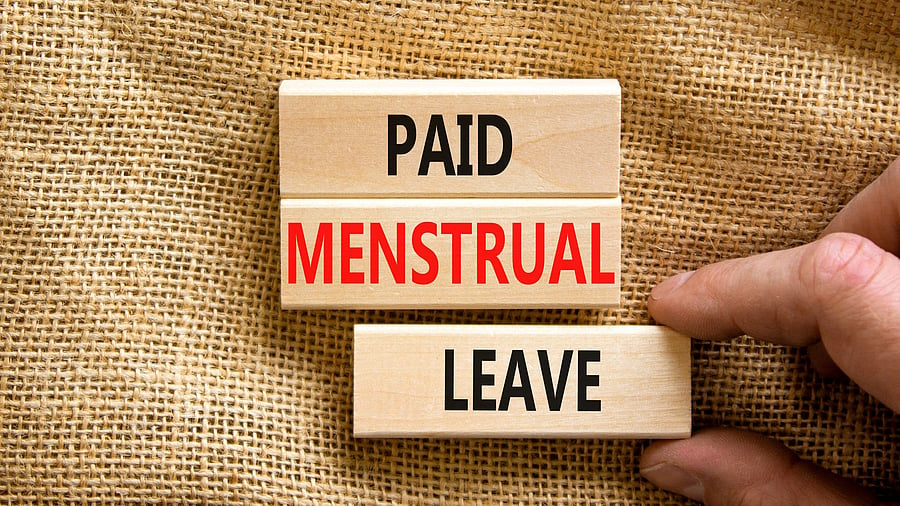
Paid menstrual leave written on wood blocks( Representative image)
Credit: iStock Photo
In a significant step towards supporting women-centric health policies, Karnataka has announced a 12-day menstrual leave per year, one day per month, for women employees across both government and private sectors. The move covers offices, IT firms, garment factories, multinational corporations (MNCs), and other private industries, and has been widely praised as a progressive measure to address menstrual health needs.
Sapna S, associate dean and HoD at Christ (Deemed-to-be) University, who led the 18-member committee proposing the policy, had told Deccan Herald, “Research shows that the pain women undergo during menstrual cramps is almost equal to a heart attack. This affirmative action will lead to more productivity, where women feel safe at work.”
Karnataka joins a growing list of Indian states and institutions that have recognised the need for menstrual leave:
Bihar: The pioneer in India’s menstrual leave movement, Bihar introduced two consecutive days of paid leave for women government employees on January 2, 1992. The policy came after female employees lobbied for union recognition and menstrual leave under then-Chief Minister Lalu Prasad Yadav.
Kerala: Following student-led advocacy at the Cochin University of Science and Technology (CUSAT), Kerala universities began allowing menstrual leave. In January 2023, Higher Education Minister R Bindu announced a 2% relaxation in required attendance for female students during exams to accommodate menstrual health needs.
Odisha: Amid nationwide discussions on menstrual leave, Odisha implemented a one-day paid leave for both government and private sector women employees. The announcement was made by then-Deputy Chief Minister Pravati Parida during the state’s 78th Independence Day celebrations in Cuttack.
Sikkim: Sikkim’s High Court registry allows women staff to take 2–3 days of menstrual leave per month, subject to a medical officer’s recommendation. Sikkim University also provides one-day menstrual leave for female students and staff. Unlike other states, this policy is limited to institutional and registry sectors rather than the entire state workforce.
Beyond state policies, several private companies are also supporting menstrual leave. Zomato, for instance, provides 10 days of paid menstrual leave, effective since August 2020. Global firms like Nuvento, Chani, Modibodi, and Future Super have implemented similar policies to support women employees.
